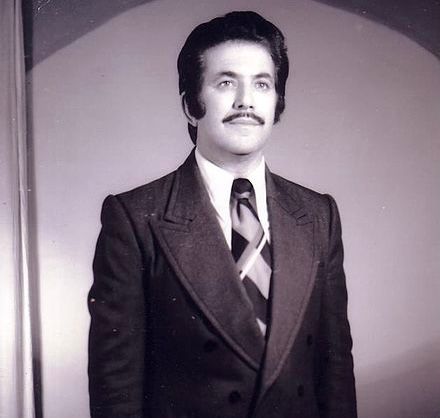Fuad Ahmad Sulaiman, born in 1932 in the village of Awena in Gwer district, was a name that resonated deeply with Kurdish music and culture. A member of the Nanakali tribe, Fuad Ahmad was the son of the late renowned artist Ahmad Tabib, one of the most influential figures in the region. His early years were marked by a commitment to education, having attended school in 1940 and later graduating from the Rural Teachers’ Institute in Duhok. His career began in the villages of Alla and Gird Azeban, where he worked as a teacher before devoting himself fully to the arts.
Fuad Ahmad’s family life was also significant, with children from both of his marriages. His eldest son, Kameran, was from his first wife, Rafida, while his second wife gave him a daughter, Payman, and another son, Shwan.
The late artist played a key role in the cultural scene from 1959 to 1970, leading the Kurdish artistic movement during that time. His musical journey began in 1955 when he recorded his first anthem, “Nawroz,” in Baghdad. He went on to produce many popular songs, including “Amirakam” (My Princess) in 1959, “Namakat Gaysht” (Your Letter Arrived), “Srway Bayan” (Morning Breeze), and “Ay Buki Taza” (Oh New Bride), his first black-and-white video in 1963. Over the years, Fuad Ahmad recorded close to one hundred songs for radio and fifty for television. His contributions were invaluable to Kurdish art and culture.
Sadly, Fuad Ahmad passed away on Tuesday, August 18, 2004, after a lifetime of enriching Kurdish music. His funeral was held in Erbil on August 22, 2004, where he was laid to rest in the Kargay Qir cemetery, marking the end of an era for the Kurdish artistic community.
One of his most famous anthems, “We are Peshmerga, as long as we live, we will liberate our homeland from the bloodsuckers,” remains an iconic tribute to the Kurdish revolution. Fuad Ahmad’s work, especially in the 1960s, marked a significant leap forward in Kurdish music. His songs, particularly “Amirakam” and “Zenebe Way Zenebe,” captured the spirit of the era, with their innovative use of color television and captivating performances. “Amirakam” became synonymous with Erbil, and the song continues to be deeply intertwined with the city’s identity.
Fuad Ahmad’s legacy endures in Kurdish music, a voice that will never fade from the hearts of his people.

